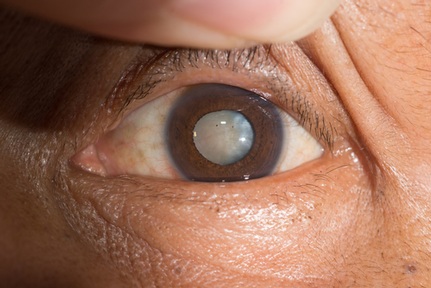Scientists find link between cataract surgery and reduced risk of dementia
Researchers found that those who have undergone cataract surgery had an almost 30 per cent less risk of developing dementia after their surgery.

The study by the University of Washington School of Medicine in Seattle also suggests there is a link between blue light and the development of dementia, as cataracts block out blue light.
Lead researcher, Dr Cecilia Lee, associate professor and Klorfine Family Endowed Chair in ophthalmology at the University of Washington School of Medicine, said: “Sensory loss, including vision and hearing, is of interest to the research community as a possible modifiable risk factor for dementia.
“Because cataract surgery improves visual function, we hypothesized that older people who undergo cataract surgery might have a decreased risk of developing Alzheimer’s disease and dementia.”
After cataract surgery, more blue light can enter the eye and the researchers believe this also plays a part in reducing dementia.
Dr Lee added: “Because cataract surgery restores the passage of blue light through the lens and to the ipRGCs, it may enable the reactivation of those cells in a way that is protective against cognitive decline.”
The study looked at over 3,000 people aged 65 and over from the ongoing Adult Changes in Thought Study.
When they enrolled in the study, they were aged 65 years or older and did not have dementia.
Researchers found of the 3,038 study participants, 853 developed dementia, with 709 of these getting Alzheimer’s disease. A total of 1,382 of the participants, which was 45 per cent, had cataract surgery.
The researchers hope the study will help doctors realise the importance of eye health in older patients who are at risk of dementia.
The study was published in the JAMA Internal MedicineTrusted Source.
Latest News
 29-Jul-24
Dementia Bus gives carehome.co.uk staff insight into life with dementia
29-Jul-24
Dementia Bus gives carehome.co.uk staff insight into life with dementia
 27-Jul-23
UK's top home care agencies in 2023 revealed
27-Jul-23
UK's top home care agencies in 2023 revealed
 30-Nov-22
A quarter of older people keep their falls secret from family
30-Nov-22
A quarter of older people keep their falls secret from family
 29-Nov-22
'Covid-19 has not gone away' say terminally ill
29-Nov-22
'Covid-19 has not gone away' say terminally ill
 28-Nov-22
IT consultant who received poor care opens 'compassionate' home care business
28-Nov-22
IT consultant who received poor care opens 'compassionate' home care business